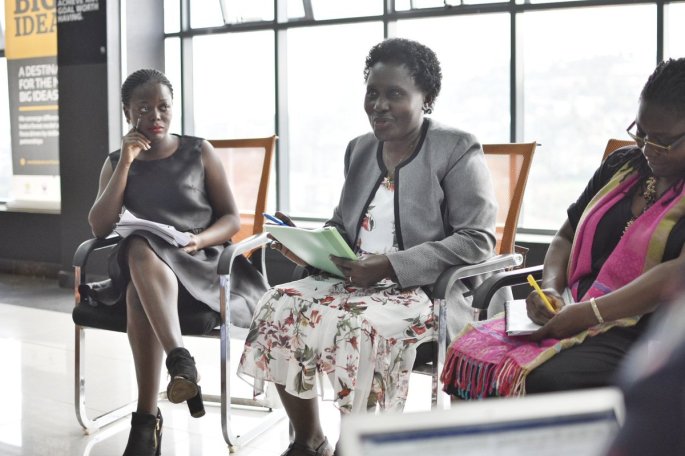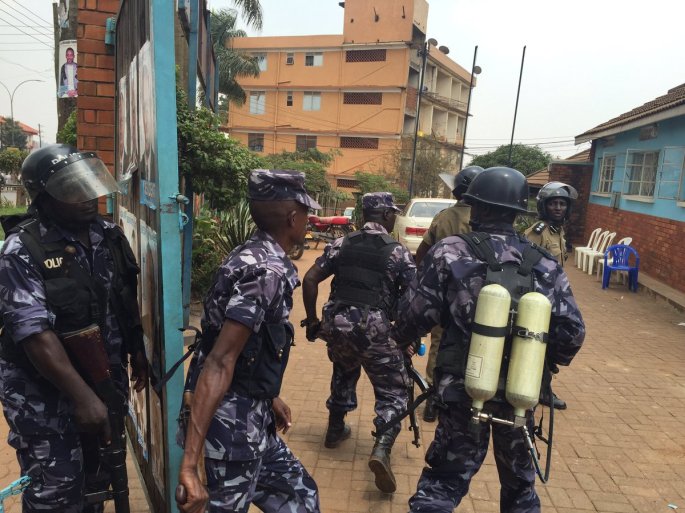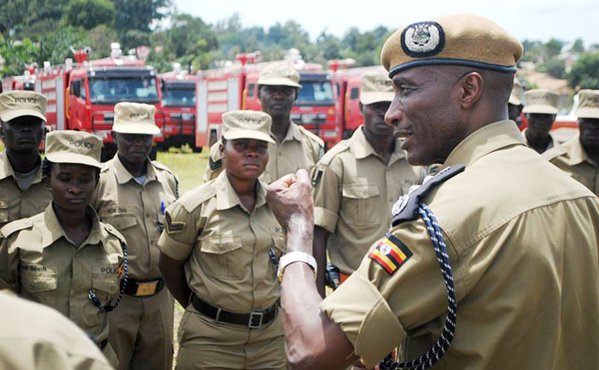This blog post is part of the Blog Action Day and this year’s theme is human rights.

At the end of September, a Youth Minister in Uganda Kibuule went on record to say a woman who is indecently dressed and is raped should face charges and the perpetrator should be set free. Journalists recorded his voice at a function in the western district of Ntungamo and the next day newspapers carried the story.
Kibuule ran to radio stations claiming he was misquoted, he even opened a twitter account to dig into the debate where I and many Ugandans had contributed condemning this rape apologist.
More than 20 girls are raped everyday in Uganda but the silence continues. Most of these rapes are committed by close friends and relatives. But for people like Kibuule, the obsession with women’s bodies blind them from the reality.
They blame clothes not perpetrators. Like many other instances in Uganda, a minister like Kibuule can abuse women and spread hate speech and incite violence and get away with it.
Not much time has passed and we are hearing a harrowing account of 23 year old girl who was gang-raped by Pakistani men.
There’s a public outcry and like in many other sexual violence cases it has emerged the file initially at Kira road police was mismanaged. This girl is living in fear because those who gang-raped have threatened to hurt her more or even kill her. But this is not new, many rape cases are never prosecuted to the end.
It was only last year the Police Form 3 was amended for law enforcement agencies to record medical practitioner’s evidence in cases of sexual violence including rape and defilement.
Before then only Police surgeons could use this form and be acceptable before the courts of law. You would find long lines at the surgeon’s office and there was no privacy. I visited two surgeons while doing a story back in 2008 and it was clear to any one who entered which cases the victims were there to report. A man with her daughter in tears would easily tell you how she’s been raped and many women seated in silence as they waiting for this one man to examine them.
More than the justice system we have a culture of silence and victim blaming. If a woman or girl is raped we have first find out if she didn’t ‘deserve’ it. We need a society that can support rape victims to be able to speak out with out rape apologists like Kibuule threatening them. If we have ministers who are on the side of rapists and actually advocating for rapist’s rights to rape we are far from the morality that we all like to go preaching about.
Like Norbert Mao said, we need to go beyond public outcries whenever cases like these come out.
First, parliament should pass the Sexual Offences Bill. This law should have provisions that protects rape victims from traumatic court sessions, creates a well facilitated sexual assault police unit, creates sexual assault response centres in our health centres to deal with the risk of HIV infection and provide post exposure prophylaxis, and which emphasises protection of child victims of rape. Second, there should be a public education campaign targeting men to sensitize them about the difference between consensual sex and rape. That’s the only way men will understand that women have a right to say no to sex. Is is also the only way we can build a society that can groom men who respect women. Third, we need more men especially those in government and parliament to take a courageous stand to end sexual violence.
Kibuule had some backing and it was heart wrenching to see young men posting on twitter in support of him. They seemed ignorant of the fact that what is decent to them can be indecent to another.
That we have laws and that under no circumstance can one excuse rape.
Those horrified by the Pakistanis who gang-raped this young woman who was only out to look for better employment, must know the link between statements like Kibuule’s and the perpetuation of rape and the silence that follows this crime.
Without structures to cater for such victims even in the face of persistent threats we can’t hide from the fact that our leaders would rather obsess about women’s bodies than put measures to ensure women are protected. If they weren’t obsessed we would see more laws that enhance women’s equality and protection passed. We wouldnt spent time speaking about the length of a skirt when more horror is delivered to our door steps every day!


















